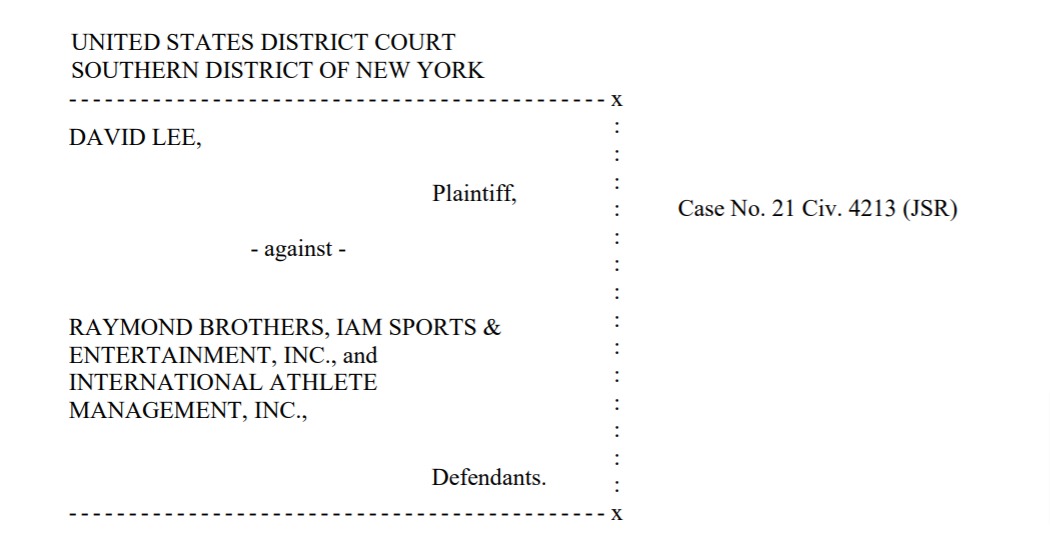Mitchell Robinson’s former NBA agent David Lee fought hard to keep his poaching lawsuit against Raymond Brothers alive, but the U.S. District Court for the Southern District of New York was not having it. The case that was premised on Brothers inducing Robinson to change agents was dismissed in full and the judge overseeing the case recently issued a thorough opinion explaining his reasoning.
Judge Jed S. Rakoff decided to have some fun with his opening paragraph.
“Being a professional basketball player’s agent may itself be something of a tough competitive sport,” wrote Judge Rakoff. “While it is perfectly proper for a player to ‘steal’ a ball on-court, an agent’s stealing another agent’s client by offering the player added financial inducement (in this case, any young man’s dream — a new pickup truck) may arguably violate the players’ union rules. But such a ‘foul’ does not give rise to a legal claim, at least not in the circumstances of this case.”
Lee wanted the court to find that he, as an agent, is an intended third-party beneficiary of Brothers’ certification with the National Basketball Players Association (NBPA), which includes an agreement to abide by the NBPA Regulations Governing Player Agents. One of the rules within the Regulations is found within Section 3(B)(2), which prohibits certified agents from providing or offering a monetary inducement (other than a fee less than the maximum fee contained in the SPAC) to any player (including a rookie) or college athlete to induce or encourage that person to utilize the agent’s services.
Judge Rakoff disagreed. Instead, he said that the language of the NBPA Regulations strongly suggests that the players, as the members of the union, are the intended beneficiaries of the rules, including the rule that prohibits improper inducements. Additionally, he noted that the NBPA Regulations state that the prohibited conduct is subject to discipline through the disciplinary procedure set out within the NBPA Regulations, which is mandatory arbitration.
Separate from finding that Lee was not an intended third-party beneficiary, Judge Rakoff also determined that Lee had no grounds to bring tortious interference with contract or business relations claims. Under New York law, a contract that is terminable at will cannot be the basis for a tortious interference with contract claim. Unfortunately for Lee, his Standard Player Agent Contract (SPAC) with Robinson was terminable at will and thus the tortious interference with contract claim was discarded.
Lee’s tortious interference with prospective business relations claim also failed because the judge did not find that Brothers’ alleged actions rose to the level of economic pressure as opposed to mere persuasion. Lee failed to allege any harm to Robinson that resulted from Brothers’ offer and Lee did not argue any facts to indicate the degree of coercion that was involved. He needed to allege that Brothers acted solely out of malice, or used dishonest, unfair, or improper means, and Judge Rakoff was not satisfied that Lee did that in his pleadings.
This is why I commonly tell people that tortious interference is a very tough cause of action, even if you believe you have a slam dunk case.
